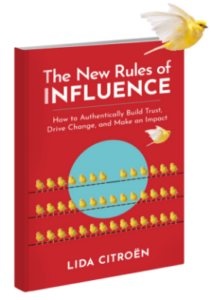 There they go – by bike, car, bus or airplane – our kids are off to school. Some are headed to kindergarten with their crisp Scooby Doo backpacks resting squarely on their shoulders. Some are headed to high school, prepped with fashionable jeans, iPhone and Air Jordan tennis shoes. Others are headed to college – wide eyed and ready to take on the world.
There they go – by bike, car, bus or airplane – our kids are off to school. Some are headed to kindergarten with their crisp Scooby Doo backpacks resting squarely on their shoulders. Some are headed to high school, prepped with fashionable jeans, iPhone and Air Jordan tennis shoes. Others are headed to college – wide eyed and ready to take on the world.
What they’re also taking with them, these kids of ours, is a reputation. The youngsters might already have personal brands that reflect their empathy, athletic competitiveness or wondrous spirit. Our high schoolers might be “branded” as full of passion and school spirit, always there to help a friend in need. And our college students may have earned the reputation as someone full of debate, curiosity and ambition.
Have they paid attention to their reputation? Likely not. As they’ve posted their dreams on Facebook, befriended the school “rebel” or dated the “popular” girls, they’ve not paid much attention to the perception others are forming about them.
And they should!
I have spoken to many groups of high school, college and graduate students about reputation and personal brand. Some of them still have that superhero sense of invincibility – “I don’t need help with my reputation, thank you.”
Others realize how important their reputation is, and how important it will be in growing their personal and academic career. Here are some tips for the kids in our lives. Please share!
1. Who do you want to be? Start building your intentional reputation by thinking about how you would like to be seen by others. How people close to you perceive you will determine the value they assign you. Then, your value attracts (or doesn’t) opportunities – i.e. leadership position at school or in team sports, college of your dreams, great job, promotions and so on.
How do you want to be perceived? Do you want to be recognized for your helpful nature, your giving and empathetic style? Do you want to be known for your ability to bring teams together and focus everyone on a big goal? Are you the person I’d go to if I need someone to cheer on a project?
2. What happens on Facebook does NOT stay on Facebook. Your teachers, college admissions officers and future employers are looking at your online profile. Facebook is “private” to a point. If you post it online, you give everyone you’re connected to the opportunity to forward, cut-and-paste and comment on your message. Are you sure you want college admissions officers to see your thoughts about your English teacher?
Your parents and coaches are watching, too (for adults – your boss, clients and colleagues are watching.) When you tell your online friends that you “blew off tennis practice because I was hung over,” don’t wonder why your coach is not willing to give you a starting spot on the team.
If you don’t want your parents and teachers to see it, don’t post it online.
3. Guilt by association. In the world of reputation management, who you hang out with directly affects others’ perception of you, and whether or not they will find you valuable (and will give you opportunities). To people who may not know you well, seeing you form friendships and relationships with people, groups, organizations and clubs that are outspoken and have questionable or controversial values makes others think you do too. If you hang out with people who smoke pot, I assume you do too. If you hang out with groups who serve the community and help others, I assume you do too. It’s as simple as that.
4. Put your best foot forward. How you show up is as important as whether you show up. If you show up to class dressed sloppy and overly casual, your teacher might think you are relaxed … or disengaged and “checked out.” The same goes for a work environment – if you don’t dress up to the part, you can send the wrong impression!
Instead of focusing on how others present themselves, find your own sense of style. If you prefer things more traditional, strive for a classic wardrobe. If you like the energy and fun of trendy fashion, then go there – just keep it within reason. Showing your midriff in class is akin to wearing a tank top at the office. It is inappropriate and distracting. I see the midriff, not your value.
5. Listen to feedback. Gossip is often hurtful and untrue. Sometimes, however, gossip can become valuable feedback about your personal brand. If you hear, through the grapevine, that you’re thought of as a “party girl” or “ a slacker” it could be that something you are doing is creating this perception. Could it be the way you’re dressing? The way you’re talking online? The people you’re hanging out with?
A negative reputation can prevent others from giving you opportunities you want. If you are thought of as “a slacker,” and you really want to compete for college scholarships, will your teachers be inclined to write recommendations for you? Why should they?
Instead, focus on managing the feedback you receive and gossip you hear to keep yourself focused on how you want to be known. Become intentional about what you do and how you show up, to move in the right direction. Avoid situations, people and groups that drag you into the opposite direction.
Your personal brand – your reputation – is one of the most powerful and empowering parts of your identity. You can control how others think and feel about you by what you say and do. If you say you are committed to serving others, make sure you do! If you want your teachers to see you as engaged and committed, be sure to show up on time and be ready to go!
None of this is easy… but it is simple. Getting a start on personal branding as a student, when many patterns of behavior have yet to be set, gives your reputation the ultimate potential.



Excellent post. I just forward it to my step-daughters. They are both starting graduate school this fall. BTW, they agreed!
Thanks for the heads up!!! I will share with my friends.
This is great information. I believe we should be talking about this at the Kindergarten level and keep talking about it so it’s instilled at an early age.
My grandsons will have a new topic at Grandy’s. Thank you Lida!
This is great advice, but I’m not sure that I would have been wise enough as a 17 year old going to college to follow it. I hope that most of them are smarter than I was!
I’m glad to hear we’ll all be sharing this info with our kids and grandkids. Mine are teens, and yes! they hear about reputation, branding, opportunities daily 🙂